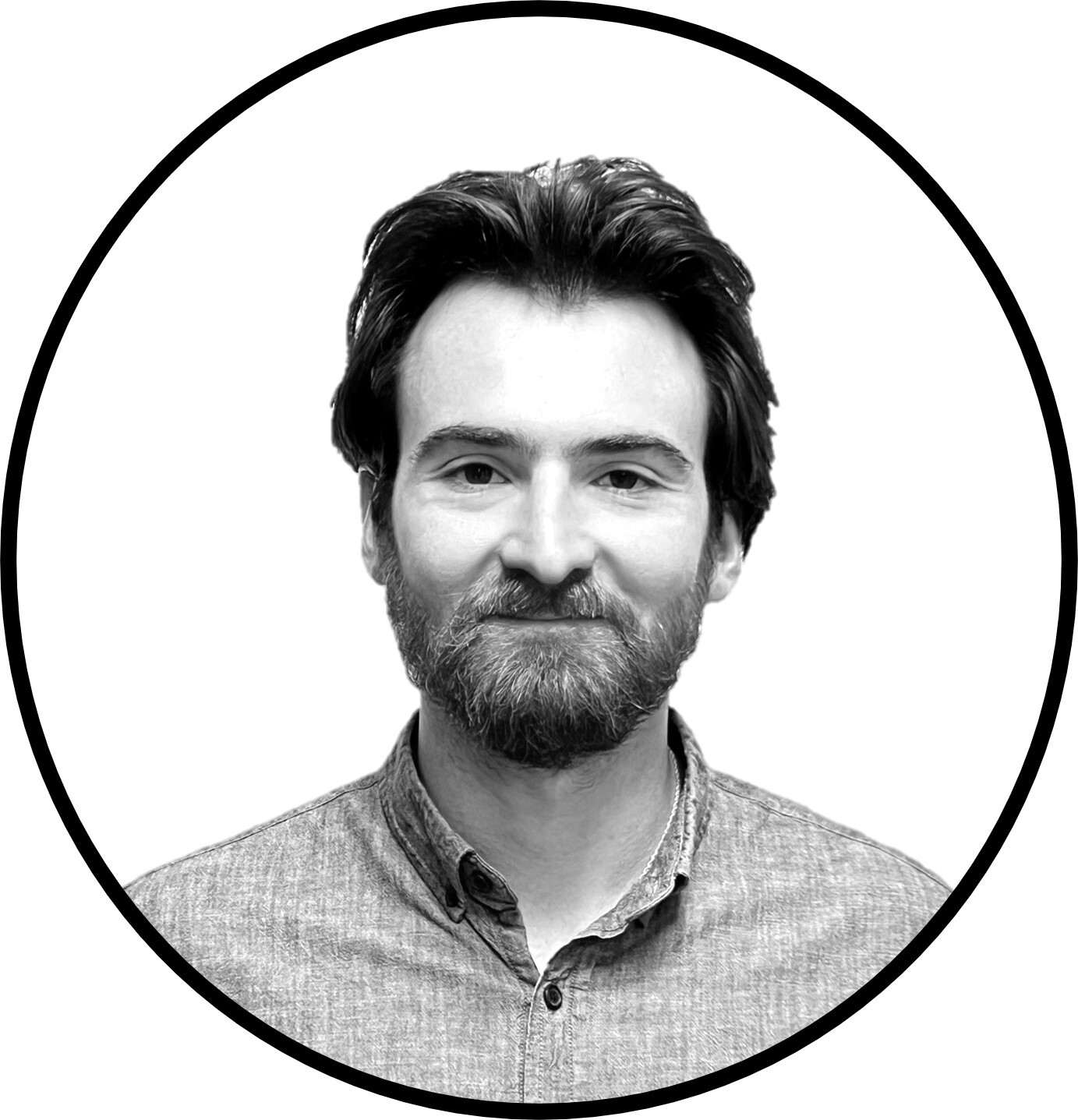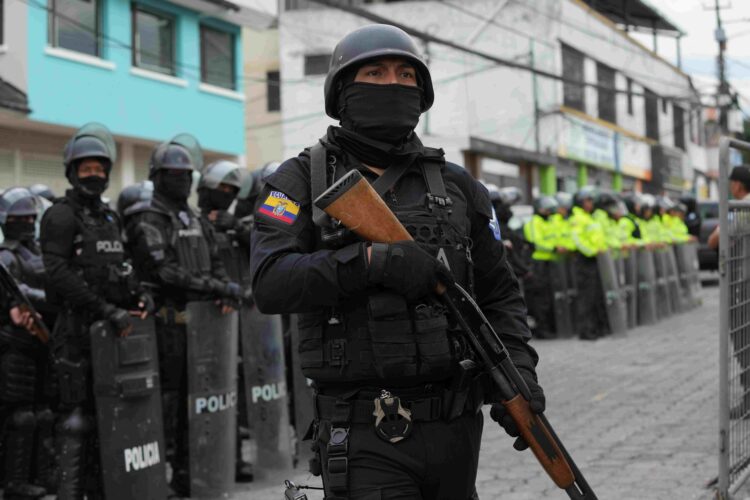The influence of El Salvador President Nayib Bukele is being felt throughout Latin America, with leaders of several crime-ravaged nations such as Ecuador, Honduras, and the Dominican Republic adopting the severe policies that have sharply reduced his country’s homicide rates.
After the leader of a powerful drug gang escaped from prison and armed gangsters raided a live TV set, Ecuadorian President Daniel Noboa declared a state of emergency and passed decrees designating 20 criminal organizations as terrorist groups, giving his country’s military the right to “neutralize” them within the guidelines of international humanitarian law. “We are in a state of war and we cannot give in,” Noboa said during an interview.
Ecuador became engulfed in violence, with police officers kidnapped all over the country and over 120 prison guards taken hostage. In response, the police have arrest about 330 people, including the men that held the TV anchor hostage, on charges of terrorism. Security personnel were dispatched to monitor hospitals, public transportation sites, and newsrooms. Classrooms went remote.
Noboa took to the radio waves to promise he would be launching an effort to crush the nation’s gangs and bring peace to the country. “We are fighting against terrorist groups made up of more than 20,000 people,” he said. “They wanted to be named as organized crime groups … but they are terrorists.” The people of Ecuador were apparently relieved to hear this speech and welcomed his draconian measures happily, according to the Associated Press (AP).
A 50-year-old businessman from the city of Guayaquil that AP spoke to said he wants his government to show “a firmer hand, to have no mercy, no tolerance or (respect for) the human rights of criminals… President Noboa must do what El Salvador did… The situation has gotten out of control. And it is because of lack of extreme measures.”
Learn the benefits of becoming a Valuetainment Member and subscribe today!
Similarly, the government of Honduras has adopted the Bukele regime’s humiliation tactics, such as regularly forcing their prison inmates to strip naked, cram together with their faces up against each other’s backs, and sit cross-legged in single-file rows as they get searched for illegal substances and weapons.
Dominican Republic leader Luis Abinader is adopting more and more of Bukele’s policies to advance his “Fight Against Crime” agenda.
Citizens of Guatemala and Honduras have held pro-Bukele marches in the streets and have honored his visits with thunderous applause.
The Security Minister of Costa Rica Jorge Torres is urging his government to adopt Bukele’s policies. The narrowly defeated presidential candidate of Colombia, Rodolfo Hernandez, paid a visit to San Salvador to study Bukele’s law enforcement tactics. Mayor of Lima and potential Peruvian presidential candidate Rafael Lopez Aliaga promises a “Bukele plan” for the nation’s crime problem. Even the relatively quiet country of Chile is seeing Bukele parades.
As of 2015, El Salvador was considered “the homicide capital of the world,” experiencing one murder every hour. Iraq, in the midst of its civil war, was not experiencing as many murders as the small Central American country on a given weekday. Now, it has reduced its homicide rate over 70 percent by imprisoning just one percent of the population.
While the public overwhelmingly approves of Bukele’s policies and their results—achieved through a state of emergency decree that allows his security forces to jail gang members without court approval—many human rights groups are crying foul, alleging that his administration has facilitated human rights abuses.
Americas Researcher at Human Rights Watch Tyler Mattiace told the Associated Press that Bukele in his mind is “one of the biggest risks for human rights and for democracy that we see in Latin America right now.”
“Bukele is incredibly popular, not only at home in El Salvador,” Mattiace went on. “We see a growing number of people in countries across Latin America who are supporting this kind of authoritarian populism because they believe that it could be the only way to address rising levels of violence.”
Similar accusations have been levelled at Bukele by the Inter-American Commission on Human Rights (IACHR), a subsidiary of the Organization of American States (OAS), Central American University’s (UCA) Observatory of Human Rights, and by sitting US Congressmembers under the leadership of progressive Representative Ilhan Omar (D-MN).
Omar and several other lawmakers sent a formal letter to Secretary of State Antony Blinken requesting that he intervene in El Salvador to put an end to the human rights violations. Media outlets funded by globalist megadonor George Soros have put out hit pieces on Bukele in the days leading up to the election, scheduled for Sunday, February 4th. Bukele, ever the pugilist, replied with outright mockery, writing on X that he welcomes their opposition with open arms. “We are HONORED to receive your attacks, just days before OUR election. I would be very worried if we had your support. Thank you,” he told them.
Bukele also recently delivered a speech to high school students on the history of El Salvador, explaining his perspective on the factors that led to the torrent of violence that beset his country over the last few decades. In his view, the rise of MS-13 was caused by a Cold War-era civil conflict in the country, financed by the US and the Soviet Union, with turmoil continuing under the Clinton administration. When Salvadoran refugees went to the United States—taking their economic productivity with them in the process—they found themselves living in ghettoes. During this time, they formed the street gangs that became the drug cartels. When they came back to El Salvador, western NGOs prevented the Salvadoran government from taking necessary action against the youth recruitment schemes run by these gangs, which led to the swelling of their ranks and the devastation of the nation’s law and order.
 Shane Devine is a writer covering politics, economics, and culture for Valuetainment. Follow Shane on X (Twitter).
Shane Devine is a writer covering politics, economics, and culture for Valuetainment. Follow Shane on X (Twitter).


















Add comment